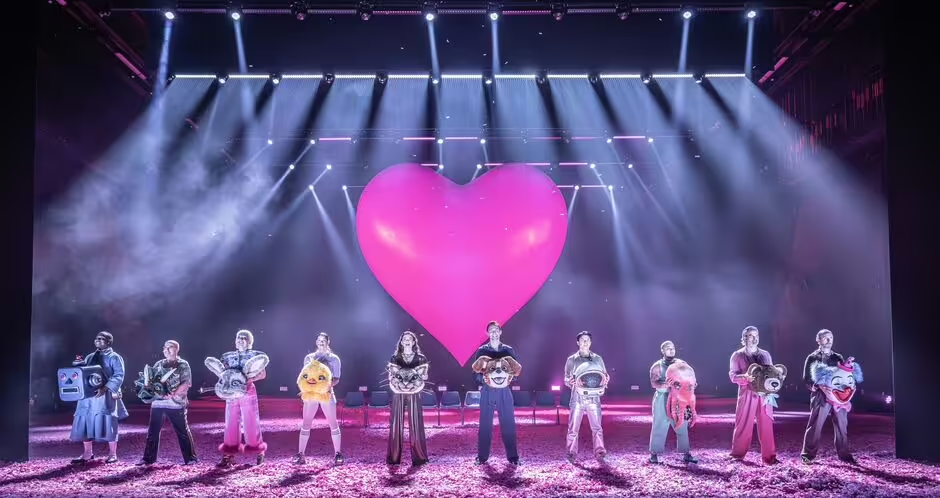
I imagine this is what it must have felt like to see Much Ado About Nothing around the turn of the century (when the first Quarto edition of the play was published in 1600, it is said to have been ‘acted publicly several times). Laughter and mirth filling the air.
This production captures exactly that: pure, unadulterated fun, draped in sparkles and sequins. I’ll admit, when I first saw the bare stage and plastic chairs—echoes of Jamie Lloyd’s Seagull—my heart sank. But it was swiftly lifted by pink confetti, resuscitated by strobe lights and blown up into a massive pink ballon. Then there was cheesy dancing, music (probably could have done without the tedious karaoke singing by the male Margaret) sexual innuendos and more revelry in masks. Best of all, no one took themselves too seriously, and everyone seemed caught up in the rumbustious joy
The interplay between Hiddleston and Atwell was superb, reminiscent of Branagh and Thompson. Claudio and Hero, played by substantially weaker actors, were predictably sidelined to no more than a sub-plot that detracted from the pleasure of the witty dialogue of the feuding pair. Thank goodness Jamie Lloyd did not go with any rewrite, but kept to the brilliant original.
My absolute favourite scene was Benedick eavesdropping on the staged conversation between Leonato, Claudio, and Don Pedro about Beatrice’s supposed love for him. Having my two kids laughing out loud as he hid behind falling confetti and inside the blown up heart was priceless.
But one thing remains unchanged across the various Jamie Lloyd productions that I have seen (beyond the plastic chairs). He could have any choice of members and yet so many of them are quite mediocre actors who seem to only have one performing style. Mika’s Borachio was no different from his Medvedenko — his ‘confession’ of treachery the least convincing I’ve ever seen. Mara Huf and James Phoon seemed plucked straight from The Tempest, with little more than a costume swap.
Maybe Beatrice and Benedick were supposed to look a bit dated in comparison, but they rocked, when the others were no more than an ensemble. And that is why they have cardboard cutouts of each other’s Marvel superheroes and the rest don’t. And plays like this is why Shakespeare, having conjured a pantheon of timeless heroes, antiheroes and enduring archetypes, is the first maestro of a cultural franchise that still captivates the globe.